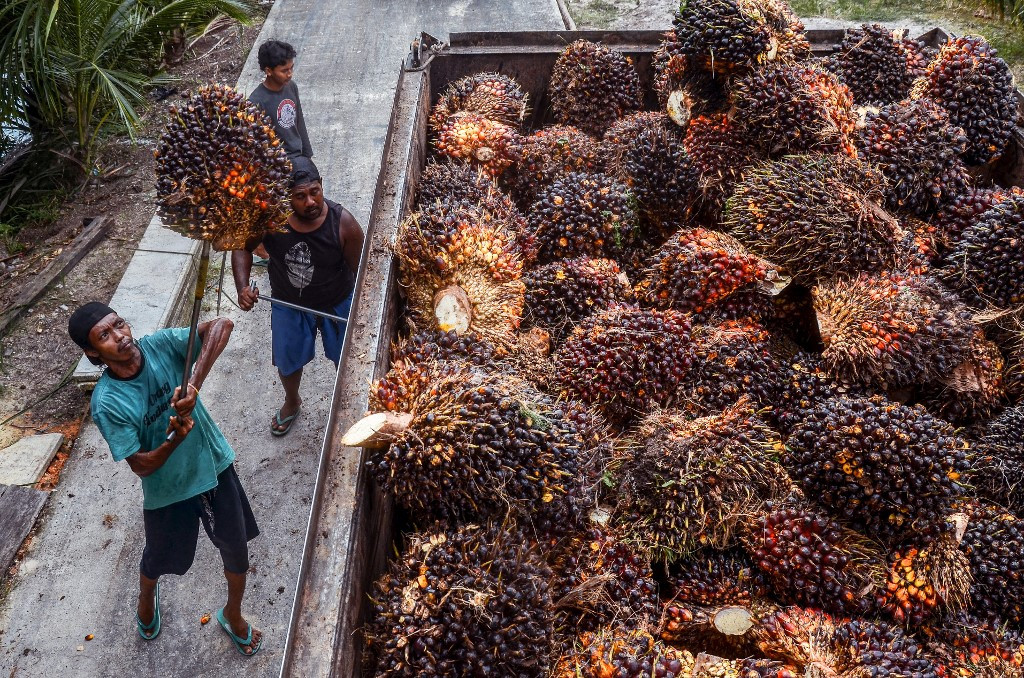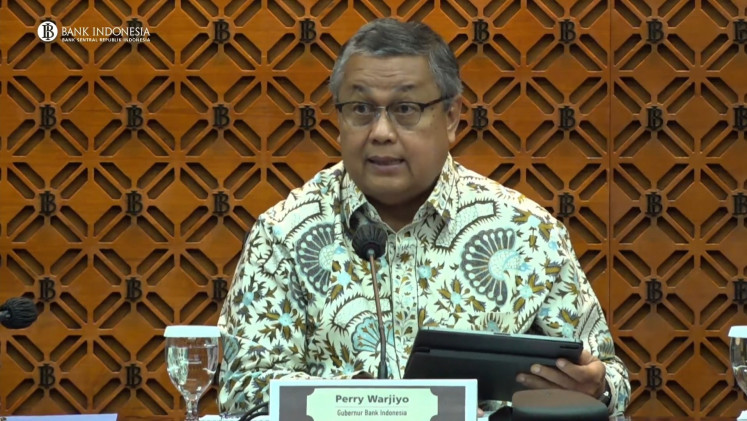EU palm oil use and imports seen plummeting by 2032
In its 2022-2032 Agricultural Outlook, the Commission projected palm oil would account for 9 percent of total biodiesel output by 2032, down from an average 23 percent for 2019/2021.
Change Size
 Workers transfer harvested palm fruits to a transport truck before being processing into crude palm oil (CPO) at a palm plantation in Pekanbaru, Riau, on April 23, 2022. (AFP/Wahyudi)
Workers transfer harvested palm fruits to a transport truck before being processing into crude palm oil (CPO) at a palm plantation in Pekanbaru, Riau, on April 23, 2022. (AFP/Wahyudi)
T
he share of palm oil in biodiesel and in food in the European Union is expected to fall significantly within the next 10 years, leading to a sharp drop in imports, the European Commission said on Thursday.
In its 2022-2032 Agricultural Outlook, the Commission projected palm oil would account for 9 percent of total biodiesel output by 2032, down from an average 23 percent for 2019/2021.
Under the EU's renewable energy directive, palm oil-based fuels, accused to be linked to deforestation, are to be phased out progressively by 2030. The move raised outcry from the world's two largest palm oil producers Malaysia and Indonesia.
In contrast the share of advanced biodiesels was expected to grow to 42 percent by 2032 from 29 percent in 2019/2021. Of this biodiesel from waste oils and fats would account for 26 percent, up from 23 percent, and other advanced biodiesels for 16 percent, up from 6 percent.
"This increase is mainly driven by specific fuel blending targets for advanced biofuels and the fact that they can be double counted towards the overall mandatory blending targets," it said.
The use of other vegetable oils, primarily rapeseed oil, in biodiesel was expected to remain relatively stable at around 50% of biodiesel feedstock.
In food, the use of vegetable oils was expected to rise by 2.9 percent compared with the 2020/2022 average to 10.6 million tonnes in 2032.
But efforts to cut the use of palm and soybean oil in the EU would lead to a significant change in balance between the different types of vegetable oils, the Commission forecast.
Palm oil use in food would fall by 35.7 percent and soybean oil by 23.5 percent while rapeseed oil would gain 12.6 percent and sunflower oil would rise 27.5 percent, the Commission said.
This would eventually lead palm oil imports into the bloc to fall to 3.3 million tonnes in 2032 from 6.0 million tonnes in 2020/2022, it said.










